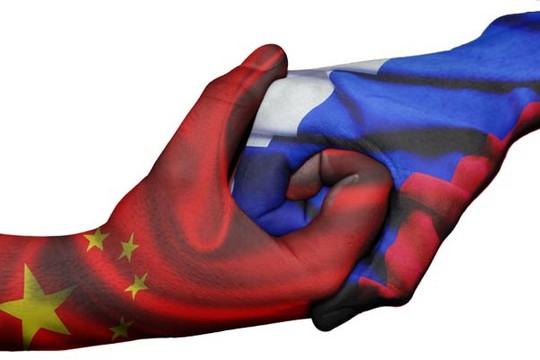The long history of Sino-Russian relations since the 1600s suggests that bilateral ties can flourish only while there is a semblance of military, political, and economic balance between the two sides, notes Philip Snow, writer and historian, living in Hong Kong, author of “China and Russia: Four Centuries of Conflict and Concord”.
Since around the start of this century, Chinese leaders visiting Moscow and Russian leaders visiting Beijing have spared few superlatives. Sino-Russian relations, they have proclaimed, have entered “their best period ever,” soared to “unparalleled heights,” and attained an unprecedentedly “high level of mutual trust.”
…With the disintegration of the Soviet Union, Russia and China had another opportunity to create a new balance. One necessary step, after a wary first year, was to jettison the old ideological clashes. Over the following years, the new relationship was developed slowly and cautiously, from one of “friendly countries” (1992) to a “constructive partnership” (1994), a “strategic partnership” (1996), and a “comprehensive strategic partnership” (2016).
By now, this new alignment has lasted three times longer than the doomed Sino-Soviet “honeymoon” 70 years earlier. This surely reflects the fact that its purpose is not revolutionary but rather deeply conservative.
It is geared toward defending the principles first espoused in the 1648 Treaties of Westphalia, among them the sanctity of national borders and the right of national governments to do as they please within their own borders without external interference.
Russia and China are both eager to defy the growing Western view that rulers are answerable to a higher global authority if they abuse their populations. Seeking a “multipolar” world to replace the US-dominated “unipolar” one, the two partners have been trying to form their own bloc of Central Asian states and, increasingly, Global South powers such as their fellow BRICS members, Brazil, India, and South Africa.
In recent years, the new Sino-Russian coalition has seemed increasingly sure of its own durability. As China’s former deputy foreign minister wrote in Foreign Affairs in December 2015, the partnership is “complex, sturdy, and deeply rooted,” and “by no means a marriage of convenience.” Five years later, in a call to his “best friend and colleague” Vladimir Putin, Chinese President Xi Jinping affirmed that the two countries’ ties could not be broken by any third party and could “weather all kinds of international crises.”
For now, at least, the Russian and Chinese leaders do seem to have steered their countries’ relationship out of the bitter hostility of the late Soviet period to reach “unparalleled heights.” But in the longer term, with China’s strength and global clout growing, the new equilibrium is likely to become unbalanced once again. China has surged far ahead of the Russians economically and technologically. Chinese GDP is now reckoned to be around ten times higher than Russia’s. The Chinese once supplied food and raw materials to the Soviet Union in exchange for machinery; now they export sophisticated electronic equipment to Russia in exchange for energy supplies, while showing a diminishing interest in Russian industrial goods.
In 2004, Russian and Chinese leaders celebrated a “final settlement” of the Far Eastern border, with Russia agreeing to give up the last three disputed islands in the Rivers Amur and Argun.
Looking back on the centuries of the Sino-Russian relationship, one can draw some tentative generalizations.
First, for Sino-Russian relations to flourish, there needs to be at least a semblance of balance. The more one partner gets ahead of the other militarily and economically, the greater the strain on the relationship.
Second, it helps to have a perceived common enemy, such as Japan in the past and the US today. If the enemy ceases to act like an enemy to both parties, the bonds of the partnership will surely weaken. But even if Sino-Russian relations worsen, the two powers are unlikely to end up ‘at each other’s throats’ (no matter how much some in the West might hope for that outcome). As a former Soviet diplomat in Beijing once observed, China and Russia have never fought a major war. Though they have come to the brink on several occasions, they have always sensed danger and stepped back.
Finally, Western arguments about China and Russia being culturally incompatible clearly reflect wishful thinking. Over the years, the two peoples have proven both willing and able to appreciate each other’s literature and art. And whatever their political differences at times, they have managed to form plenty of business partnerships and personal friendships.
With no other choice but to share the Eurasian continent, that is what Russia and China have done, though rarely on equal terms, concludes the English historian and researcher.
read more in our Telegram-channel https://t.me/The_International_Affairs

 10:51 01.05.2023 •
10:51 01.05.2023 •























